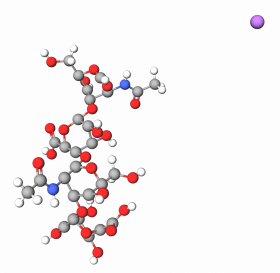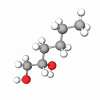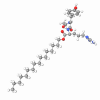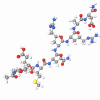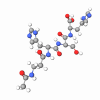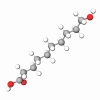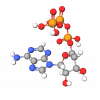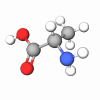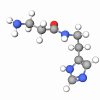Sodium Hyaluronate is the sodium salt form of Hyaluronic Acid (HA). It has been used in cosmetics and skincare products for moisturization and wound healing since its discovery in the 1930s. It comprises small molecules that penetrate the skin quickly and hold up to 1000 their weight in water. Because the skin naturally loses its water composition as it ages, SH can replace some of the water lost in the dermis and potentially fight wrinkles and other signs of aging.
It's also a perfect building block for the natural production of long chains of Hyaluronic acid. In addition, Sodium Hyaluronate can adjust its moisture absorption based on the relative humidity in the air and protect the skin by scavenging for reactive oxygen species created by UV rays, fighting sunspots, and other age spots.
Sodium Hyaluronate is a perfect ingredient for skincare formulas that changes the skin, and it receives new freshness, elasticity, and looks plumper and younger. In addition, it fights against wrinkles, provides the skin with much-needed moisture, and supports its suppleness.
Brewer's yeast produces sodium hyaluronate from edible Cock's comb
Hyaluronic acid (HA), a mucopolysaccharide is one of many compounds found in skin & connective tissue. The human body naturally produces hyaluronic acid to moisturize and lubricate the intercellular matrix that fills the space between the cells of such diverse tissues as skin, tendons, muscles, and cartilage. This high-viscosity mucopolysaccharide, with alternating glucuronate and glucosamine sugars, has a molecular weight ranging from 1.9 - 2.7 million.
Sodium hyaluronate (SH) is the sodium salt of hyaluronic acid, and plays a vital role in the hydration of the dermis thanks to its moisturizing and lubricating properties. The sodium salt of hyaluronic acid is a naturally occurring polysaccharide composed of alternating D-glucuronic acid and N-acetylglucosamine residues. The significant role played by sodium hyaluronate in the skin is one of moisturization and water retention. Applied to the skin it forms a protective coating locking water next to the skin.
Natural hyaluronic acid is presently derived from cockscomb and a fermentation process involving Streptococcus bacteria. Another method uses Brewer's yeast (Saccharomyces cerevisiae) as a bio-factory. Specific intracellular fractions, including high molecular weight sugars, can be isolated and extracted from yeast in one such process. These molecules have moisturizing properties markedly similar to sodium hyaluronate.Concerns within the cosmetic industry have led us to discover a non-animal source for alternative cosmetic ingredients, such as Brewer's yeast-derived SH. The raw material produced via a proprietary biotechnological method is free of contaminants such as glycosaminoglycans, proteins of animal origin, and other sources of consumer concern. Sodium hyaluronate not only serves as an excellent skin humectant but also leaves a soft, moisture-retentive film on the skin. These moisture-binding properties combined with structural elements leave skin feeling smooth and supple.
Sodium hyaluronate is an excellent moisturizer ingredient for skin and body care products, formulated for normal, dry, dehydrated, and sensitive skin. It works well in foundations, eye shadows, eyeliners, and mascara. It can also be used as a nourishing skin treatment or intensive skin care product.
